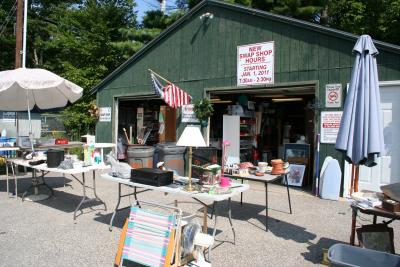-
Our Community
-
- Welcome Visitors About Durham's Community Climate Remembrance Project Diversity Welcome Statement Life in Durham Places to Stay Places to Eat Places to Park Transportation Schools Oyster River School District Welcome New Homeowners
- Durham Public Library Programs & Events Trails and Town Lands Conservation Commission Land Stewardship Conservation Lands & Parks Conservation Easements Trails Youth Organizations University of New Hampshire Durham Preservation Durham Historic Association
- Volunteer Town of Durham Land Stewardship Public Library UNH Cooperative Extension Churchill Rink Parks & Recreation Recreation Program Calendar Outdoor Recreation Activities Outdoor Recreation Sites Sustainable Durham Recycling Information Swap Shop Information Earth Day 2023
-
- Doing Business
-
Inside Town Hall
-
- Departments Assessing Building Business Office Code Enforcement Information Technology Planning Town Clerk/Tax Collector Parks & Recreation Boards, Commissions & Committees Agricultural Commission Conservation Commission Historic District/Heritage Comm. Other Boards & Committees Planning Board Zoning Board
- DCAT Media Productions DCAT Media - Programming DCAT Media Livestream Zoom Video Meeting Schedule Town Council Town Administration Public Hearings Public Safety Police Fire McGregor Memorial EMS (Ambulance)
- Public Works Engineering Division Operations Division Sanitation Division Water Division Wastewater Division Stormwater Town Directory Telephone Directory by Department Services Directory
-
-
Helpful Resources
-
- Quick Links Assessors Online Database Bids and RFP’s DCAT Media Productions GIS Digital Maps Jobs Online Services Parking Information Social Services Town Holidays Trash Pick Up Holiday Schedule Transfer Station & Recycling Center Information Curbside Refuse Collection by Street Zoom Video Meeting Schedule
- Town Documents Budget & CIP Forms & Applications Master Plan Tax Increment Finance (TIF) Districts Tax Maps Town Charter Town Code Town Reports Town Wide Master Fee Schedule Zoning Ordinance Voter Information
- Contact Us Cemetery Information Social Media Facebook Twitter Town Newsletter Friday Updates Town Meetings & Events Agenda and Minutes Calendar Public Hearing Notices State & U.S. Representatives
-
The Swap Shop at the Durham Transfer Station is a volunteer powered community resource.
Our mission:
Keep items out of the landfill, thereby reducing environmental impact and tipping costs to the town.
Reduce the amount of new products residents will need to purchase when used will suffice.
Strengthen the community by providing a place where residents exchange goods and stop by for friendly conversation.
When is the Swap Shop Open?
Saturdays & Tuesdays
9:00 AM - 2:30 PM
How Can Residents Use the Swap Shop?
Residents with a Transfer Station sticker can take or donate items from the Swap Shop from 9 a.m.to 2:30 p.m. when the Transfer Station is open on Tuesdays and Saturdays.
How Can Residents Volunteer?
To stay open and operate as well as it does, the Swap Shop requires upwards of 150 volunteer hours a month! You can keep this valuable community resource going by volunteering monthly, weekly, or every once in a while. See your neighbors and get first pick on incoming items!
Click HERE to sign up for a “shadow” volunteer shift. You will be welcomed !!! and paired with a seasoned volunteer who will show you the ropes.
You can also email durhamnhswapshop@gmail.com for more information.
What CAN be donated to the Swap Shop?
Please see the volunteer on duty before leaving a donation!
Items must be safe, clean, functional and in at least “good” condition.
All items donated to the Swap Shop must first be approved by a Swap Shop volunteer.
What CANNOT be donated to the Swap Shop?
Please see the volunteer on duty before leaving a donation!
- Dirty, moldy or stained items
- Broken, nonfunctioning or items missing pieces
- Boxes full of unsorted items unless approved by a Swap Shop Volunteer
- Upholstered furniture or other bulky waste items unless approved by a Swap Shop Volunteer
- Construction materials unless approved by a Swap Shop Volunteer
- Appliances bigger than a microwave
- Hazardous materials or chemicals
- Child safety items (car seats, cribs that don’t meet safety specs, sports helmets, life jackets/Life preservers)
- Mattresses
- Opened or expired food, beverages, cosmetics
- Textbooks, dated manuals, or more than 1 box of books per resident
- Skis, Ski Boots
Other operations guidelines:
- Transfer Station Attendants and Swap Shop Volunteers have the discretion to refuse items.
- All large items and electronics must be assessed by Transfer Station Attendants before being brought to the Swap Shop.
- Items that don’t get taken will end up being removed, sorted and placed in their respective roll-off container at the discretion of the Swap Shop volunteers.
- Items in the Swap Shop carry no guarantee and are taken at one’s own risk.
- Electronic/Appliance stickers must be attached to refrigerators, freezers, air conditioners, dehumidifiers, televisions, computer monitors, and printer/copiers even if left at the Swap Shop. These stickers may be purchased at the Public Works Office or at the Transfer Station and Recycling Center.
- Users of the Swap Shop are encouraged to remain at the facility for no longer than thirty minutes during any one visit to allow other residents an opportunity to view and take items.
- Residents are expected to cooperate with the requests of Swap Shop volunteers or Public Works Attendants while utilizing the facility.
Collection Containers (Adjacent to the Swap Shop)
Textile Recycling Bins (Eco Smith, Salvation Army)
Accepted items: clean clothing, coats, shoes (seal in a bag together), towels, curtains, sheets blankets, bedding, tablecloths, fabrics of more than one yard in length, belts and scarves, stuffed animals
Discovery Books
All books that the Swap Shop cannot accept
What can I do with items the Swap Shop cannot accept?
Click HERE to find a list of other ways to recycle your items


